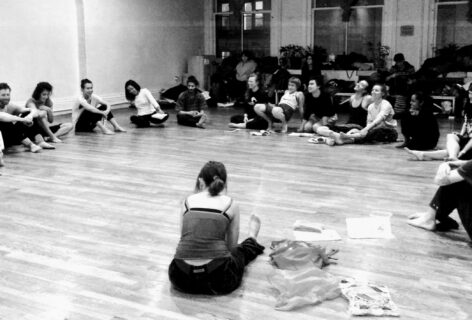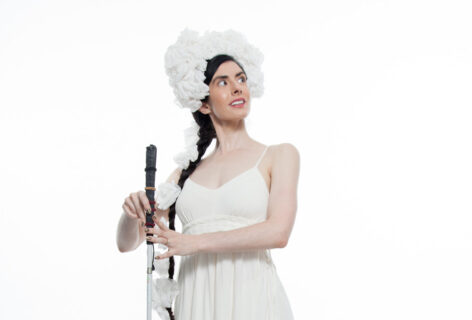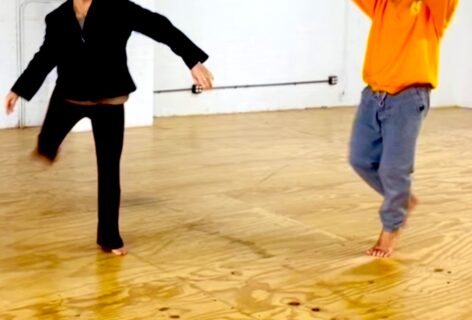Morning Classes
Happening throughout the week at various times of day, Morning Classes offer the opportunity to learn a Teaching Artist’s movement practices, investigations, and histories. This movement experience may include somatic practices, improvisation techniques, and movement phrase exercises. If dance experience is recommended, it will be indicated in the description of the class.
This Winter/Spring season, Morning Classes are taught by:
Physical Inquiries & Somatic Practices
A series of ongoing, weekly drop-in classes based on a variety of body practices, designed to expand one’s understanding and use of the body. Classes are suitable for professional dancers and non-dancers alike.
Taught by rotating faculty, classes include
- Klein Technique™ / Stretch & Placement
- Releasing (virtual)
- Qi Gong
- Starship Somatics (virtual)
- Pilates
- Ineffable but we Practice
- Feldenkrais®
- Alexander Technique
- Yoga
- Topf Technique/Dynamic Anatomy
- Klein Technique™ Dance/Movement
Trisha Brown Dance Company Class
Movement Research partners with the Trisha Brown Dance Company to host weekly ongoing Company Class taught by a rotating cast of current and former company members . Over the course of these classes, instructors will guide dancers through movement practice and selected repertory excerpts from Trisha Brown's extensive body of work. Each teacher offers a unique focus and range of personal experience related to their understanding of Trisha’s choreographic sensibility, with the goal of empowering students in their artistic pursuits.
Dark Room Ballet
Hosted by Movement Research, Dark Room Ballet is a unique program designed to serve the specific educational needs of blind and visually impaired people. Dark Room Ballet is created and taught by Krishna Washburn and coordinated by Alejandra Ospina.
Improvisational Forms
Movement Research hosts a variety of classes in improvisational forms including Contact Improvisation; The Underscore - developed by Nancy Stark Smith and led by a rotating roster of Underscore Facilitators; and Athletics of Intimacy - K.J. Holmes' signature class - which explores dancing through the improvisational lenses of somatics, contact improvisation, and perceptual composition.
Workshops
Workshops assist the pursuit of deeper levels of exploration into new dance processes, techniques, and ways of thinking and working, for faculty and students alike. Workshops are scheduled throughout the year, and as part of the Sounding Body Series and MELT Summer and Winter Intensives.
MELT
Movement Research’s Winter and Summer intensives feature innovative teachers and creators exploring pertinent topics in dance today. Workshops include technique, composition, somatic practices, and improvisation as well as non-studio topics like lighting design, reading groups, and “movie” nights.



